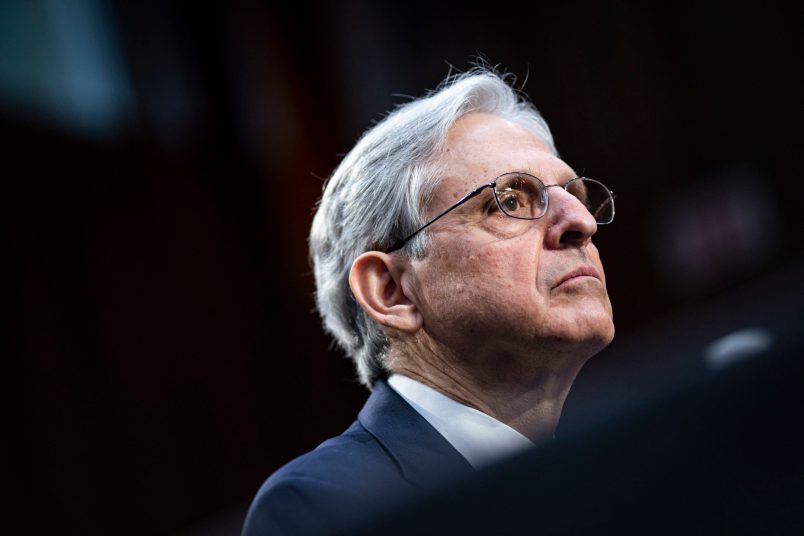The Biden administration has sought to appeal the blistering ruling from a judge ordering that the Justice Department release a controversial internal memo related to Special Counsel Robert Mueller’s probe.
U.S. District Judge Amy Berman Jackson earlier this month accused the Trump-era Justice Department of engaging in “misrepresentation” and “lack of condor” in its arguments for why parts of the memo — which discussed whether the former President’s obstructive conduct, as laid out by Mueller, constituted a prosecutable crime — must be withheld from the public.
Whether the Department, under Attorney General Merrick Garland, would appeal Jackson’s ruling was an early test for how the Biden administration would deal with lingering controversies from the Trump era while defending the institution of the Department.
In a filing submitted late Monday, the Department said that it “did not intend to mislead the Court” and that it “deeply regrets the confusion” it caused with court briefs that “could have been clearer.”
The Department said Monday it would acquiesce to the judge’s order that some sections of redactions be removed, but that it would continued to fight in court to keep another part of the memo out of public view.
The dispute over releasing the memo arose from a Freedom of Information Act request for the memo filed by the watchdog group Citizens for Responsibility and Ethics in Washington. The memo was assembled by the DOJ’s in-house legal arm, during the weekend between when Attorney General Bill Barr received Mueller’s report and when he released a misleading summary of its contents.
The Biden administration is now fighting to keep private a part of the memo that it says fits into a FOIA carve-out for pre-decisional deliberative process. Judge Jackson had concluded that the exemption was not relevant. She said, citing other internal Department communications, that the memo was assembled after a decision had already been made not to prosecute Trump.
The Biden administration in its Monday filing conceded that when the memo was drafted, Barr “was not making a decision about whether to indict or prosecute, and we regret language that was imprecise in the government’s brief and the confusion it has caused.”
It pointed to an internal Department opinion that says federal prosecutions cannot be brought against sitting presidents. The Department said Monday it had never meant to suggest to the court that bringing “an actual criminal prosecution was in play.”
Rather, the Biden administration said that Barr was deliberating whether Mueller had surfaced facts that would have otherwise justified bringing a prosecution and what Barr could say publicly about such a determination.
The Biden administration also defended the timing of when the memo was drafted, as the judge had zeroed in on how the Department had apparently prioritized finishing the summary letter announcing Barr’s decision to Congress over finalizing the memo, ostensibly advising him on that decision.
“[I]t is not unusual, particularly in a matter being handled in expedited fashion, for a recommendation memorandum to be prepared contemporaneously with the document that carries out the decision,” the Biden administration wrote Monday.
The Biden administration announced its intent to appeal the case after previously asking Jackson for more time to figure out how it wanted to handle her ruling. Senate Democrats had called on Garland not to appeal the ruling and rather remove the redactions in question.
Read the Biden administration’s filing explaining its decision to appeal below:







Keeping their cards close to their chest I’m guessing.
Guessing is all I got, and It ain’t covering.
I can understand Biden covering for Barr and Trump. Members of the club have to look out for each other.
“lack of condor”
Wasn’t due to widespread use of DDT?
In any case, if the DoJ wants to indict a bunch of people and put them on trial (please please), it will be easier to empanel a jury if the evidence is not sprayed all over the news media.
On first read, appears to be less here than meets the eye. Disagreements are centered around what can/must be released under FOIA and what is exempt from release-- specifically some pre-decisional, interagency advisory stuff, and attorney-client privileged stuff.
The sort of thing that policy wonks get all excited about, because releasing here would become precedent in other FOIA cases.
IOW, I’m not surprised that DOJ would be taking this stance, not because they’re trying to actively continue covering for trump/barr, but because not appealing this order would have ramifications down the line in future requests.